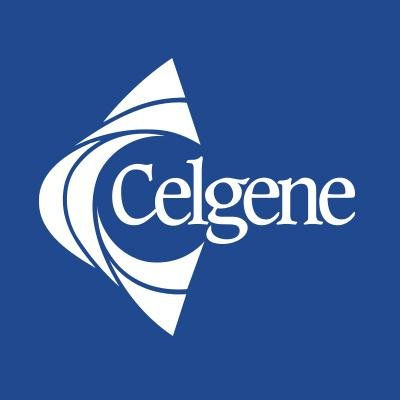预约演示
更新于:2025-05-15
GM-CSF vaccine(Aduro Biotech)
更新于:2025-05-15
概要
基本信息
药物类型 治疗性疫苗 |
别名- |
靶点- |
作用方式 刺激剂 |
作用机制 免疫刺激剂 |
在研适应症- |
非在研适应症 |
在研机构- |
权益机构- |
最高研发阶段无进展临床3期 |
首次获批日期- |
最高研发阶段(中国)- |
特殊审评- |
登录后查看时间轴
关联
1
项与 GM-CSF vaccine(Aduro Biotech) 相关的临床试验NCT03600350
Phase II Trial of a DNA Vaccine Encoding Prostatic Acid Phosphatase (pTVG-HP) and Nivolumab in Patients With Non-Metastatic, PSA-Recurrent Prostate Cancer
The purpose of this study is to evaluate the safety of an investigational DNA vaccine, pTVG-HP, a plasmid DNA encoding human prostatic acid phosphatase (PAP), in combination with nivolumab, and the efficacy of this combination in decreasing serum Prostate-Specific Antigen (PSA) in patients with non-metastatic, non-castrate prostate cancer (clinical stage D0/M0).
开始日期2018-09-10 |
申办/合作机构 |
100 项与 GM-CSF vaccine(Aduro Biotech) 相关的临床结果
登录后查看更多信息
100 项与 GM-CSF vaccine(Aduro Biotech) 相关的转化医学
登录后查看更多信息
100 项与 GM-CSF vaccine(Aduro Biotech) 相关的专利(医药)
登录后查看更多信息
27
项与 GM-CSF vaccine(Aduro Biotech) 相关的文献(医药)2020-01-01·Journal of Cancer3区 · 医学
Increased Tim-3 expression on TILs during treatment with the Anchored GM-CSF vaccine and anti-PD-1 antibodies is inversely correlated with response in prostate cancer
3区 · 医学
ArticleOA
作者: Long, Zhaolin ; Chen, Haixiong ; Zhou, Xiangyun ; Gao, Jimin ; Zou, Feng ; Yang, Shaomin ; Shi, Yuqiang ; Wu, Shihao ; Chen, Yuanxiang ; Li, Guanfeng ; Zhang, Xinji
Programmed death receptor-1 (PD-1) and T cell immunoglobulin and mucin domain-containing protein-3 (Tim-3) play important roles in tumor immune evasion. PD-1 blockade could produce an effective antitumor effect in many solid tumors except prostate cancer (PCa) because of rare programmed death ligand-1 (PD-L1) expression on PCa cells. Streptavidin (SA)-GM-CSF surface-anchored tumor cell (Anchored GM-CSF) vaccines could increase the number of tumor-infiltrating lymphocytes (TILs) and induce specific antitumor immune responses. The Anchored-GM-CSF vaccine and anti-PD-1 antibodies exerted synergistic effects in mouse models of PCa metastasis. However, the response rate was low due to the presence of other negative regulatory pathways. Tim-3 expression could be upregulated at resistance to combination therapy with anti-PD-1 antibodies and the Anchored GM-CSF vaccine. Sequential administration of anti-PD-1 and anti-Tim-3 antibodies could further improve the efficacy of the Anchored GM-CSF vaccine therapy, and tumor regression was noted in over 60% of animals. This triple therapy improved the specific cytotoxic activity, proliferation and secretion of CD8+ TILs and reduced the production of tumor-promoting cytokines. These findings indicated that this triple therapy could induce a robust antitumor immune response in mouse models of PCa.
2019-08-01·Cancer medicine3区 · 医学
Final analysis of a phase I/IIa trial of the folate‐binding protein‐derived E39 peptide vaccine to prevent recurrence in ovarian and endometrial cancer patients
3区 · 医学
ArticleOA
作者: Clifton, Guy T. ; Vreeland, Timothy J. ; Berry, John S. ; Martin, Jonathan ; Hamilton, Chad A. ; Hale, Diane F. ; Maxwel, George L. ; Myers, John W. ; Brown, Tommy A. ; Peoples, George E. ; Greene, Julia M. ; Jackson, Doreen O. ; Elkas, John C. ; Herbert, Garth S. ; Darcy, Kathleen M. ; Conrads, Thomas P. ; Byrd, Kevin
Abstract:
Background:
E39, an HLA‐A2‐restricted, immunogenic peptide derived from the folate‐binding protein (FBP), is overexpressed in multiple malignancies. We conducted a phase I/IIa trial of the E39 + GM‐CSF vaccine with booster inoculations of either E39 or E39′ (an attenuated version of E39) to prevent recurrences in disease‐free endometrial and ovarian cancer patients(pts). Here, we present the final 24‐month landmark analysis.
Patients and methods:
HLA‐A2 + patients receiving E39 + GM‐CSF were included in the vaccine group (VG), and HLA‐A2‐ pts (or HLA‐A2 + patients refusing vaccine) were followed as the control group (CG). VG group received 6 monthly inoculations as the primary vaccine series (PVS) and were randomized to receive either E39 or E39′ booster inoculations. Demographic, safety, immunologic, and disease‐free survival (DFS) data were collected and evaluated.
Results:
Fifty‐one patients were enrolled; 29 in the VG and 22 in the CG. Fourteen patients received <1000 μg and 15 received 1000 μg of E39. There were no clinicopathologic differences between VG and CG or between dose groups. E39 was well tolerated. At the 24 months landmark, DFS was 55.5% (VG) vs 40.0% (CG), P = 0.339. Patients receiving 1000 μg and boosted patients also showed improved DFS (P < 0.03). DFS was improved in the 1000 μg group after treatment of primary disease (90.0% vs CG:42.9%, P = 0.007), but not in recurrent patients. In low‐FBP expressing patients, DFS was 100.0% (1000 μg), 50.0% (<1000 μg), and 25.0% (CG), P = 0.029.
Conclusions:
This phase I/IIa trial reveals that E39 + GM‐CSF is safe and may be effective in preventing recurrence in high‐risk ovarian and endometrial cancer when optimally dosed (1000 μg) to FBP low patients being treated for primary disease.
2019-07-15·Clinical cancer research : an official journal of the American Association for Cancer Research1区 · 医学
Efficacy and Safety Analysis of Nelipepimut-S Vaccine to Prevent Breast Cancer Recurrence: A Randomized, Multicenter, Phase III Clinical Trial
1区 · 医学
Article
作者: Bondarenko, Igor ; Sergii, Grybach ; Price Hiller, Julie ; Melisko, Michelle ; Petrakova, Katarina ; Lu, Biao ; Peoples, George E. ; Brunt, Adrian Murray ; Mittendorf, Elizabeth A.
Abstract:
Purpose::
In phase I/II studies, nelipepimut-S (NP-S) plus GM-CSF vaccine was well tolerated and effectively raised HER2-specific immunity in patients with breast cancer. Results from a prespecified interim analysis of a phase III trial assessing NP-S + GM-CSF are reported.
Patients and Methods::
This multicenter, randomized, double-blind phase III study enrolled females ≥18 years with T1–T3, HER2 low–expressing (IHC 1+/2+), node-positive breast cancer in the adjuvant setting. Patients received 1,000 μg NP-S + 250 μg GM-CSF or placebo + GM-CSF monthly for 6 months, then every 6 months through 36 months. The primary objective was disease-free survival (DFS). Protocol-specified imaging occurred annually. New abnormalities were categorized as recurrence events; biopsy confirmation was not mandated. The interim analysis was conducted as specified in the protocol after 73 DFS events.
Results::
A total of 758 patients (mean age 51.8 years) were randomized. Adverse events were similar between groups; most common were injection-associated: erythema (84.3%), induration (55.8%), and pruritus (54.9%). There was no significant between-arms difference in DFS events at interim analysis at median follow-up (16.8 months). In the NP-S arm, imaging detected 54.1% of recurrence events in asymptomatic patients versus 29.2% in the placebo arm (P = 0.069).
Conclusions::
NP-S was well tolerated. There was no significant difference in DFS events between NP-S and placebo. Use of mandated annual scans and image-detected recurrence events hastened the interim analysis contributing to early trial termination.
100 项与 GM-CSF vaccine(Aduro Biotech) 相关的药物交易
登录后查看更多信息
研发状态
10 条进展最快的记录, 后查看更多信息
登录
| 适应症 | 最高研发状态 | 国家/地区 | 公司 | 日期 |
|---|---|---|---|---|
| 费城染色体阳性慢性粒细胞白血病 | 临床3期 | 美国 | 2003-04-01 | |
| 残留肿瘤 | 临床2期 | 美国 | 2019-09-23 | |
| 残留肿瘤 | 临床2期 | 美国 | 2019-09-23 |
登录后查看更多信息
临床结果
临床结果
适应症
分期
评价
查看全部结果
| 研究 | 分期 | 人群特征 | 评价人数 | 分组 | 结果 | 评价 | 发布日期 |
|---|
No Data | |||||||
登录后查看更多信息
转化医学
使用我们的转化医学数据加速您的研究。
登录
或

药物交易
使用我们的药物交易数据加速您的研究。
登录
或

核心专利
使用我们的核心专利数据促进您的研究。
登录
或

临床分析
紧跟全球注册中心的最新临床试验。
登录
或

批准
利用最新的监管批准信息加速您的研究。
登录
或

特殊审评
只需点击几下即可了解关键药物信息。
登录
或

生物医药百科问答
全新生物医药AI Agent 覆盖科研全链路,让突破性发现快人一步
立即开始免费试用!
智慧芽新药情报库是智慧芽专为生命科学人士构建的基于AI的创新药情报平台,助您全方位提升您的研发与决策效率。
立即开始数据试用!
智慧芽新药库数据也通过智慧芽数据服务平台,以API或者数据包形式对外开放,助您更加充分利用智慧芽新药情报信息。
生物序列数据库
生物药研发创新
免费使用
化学结构数据库
小分子化药研发创新
免费使用



